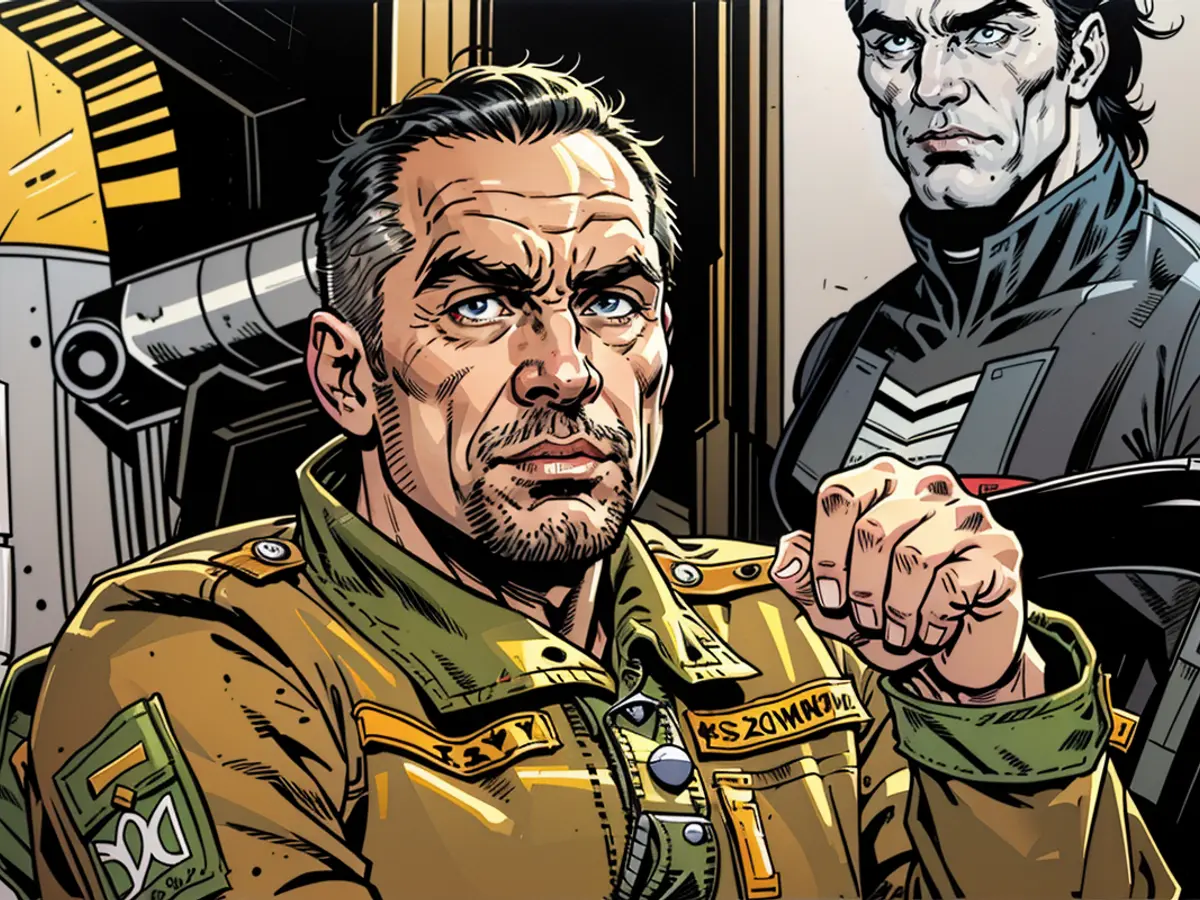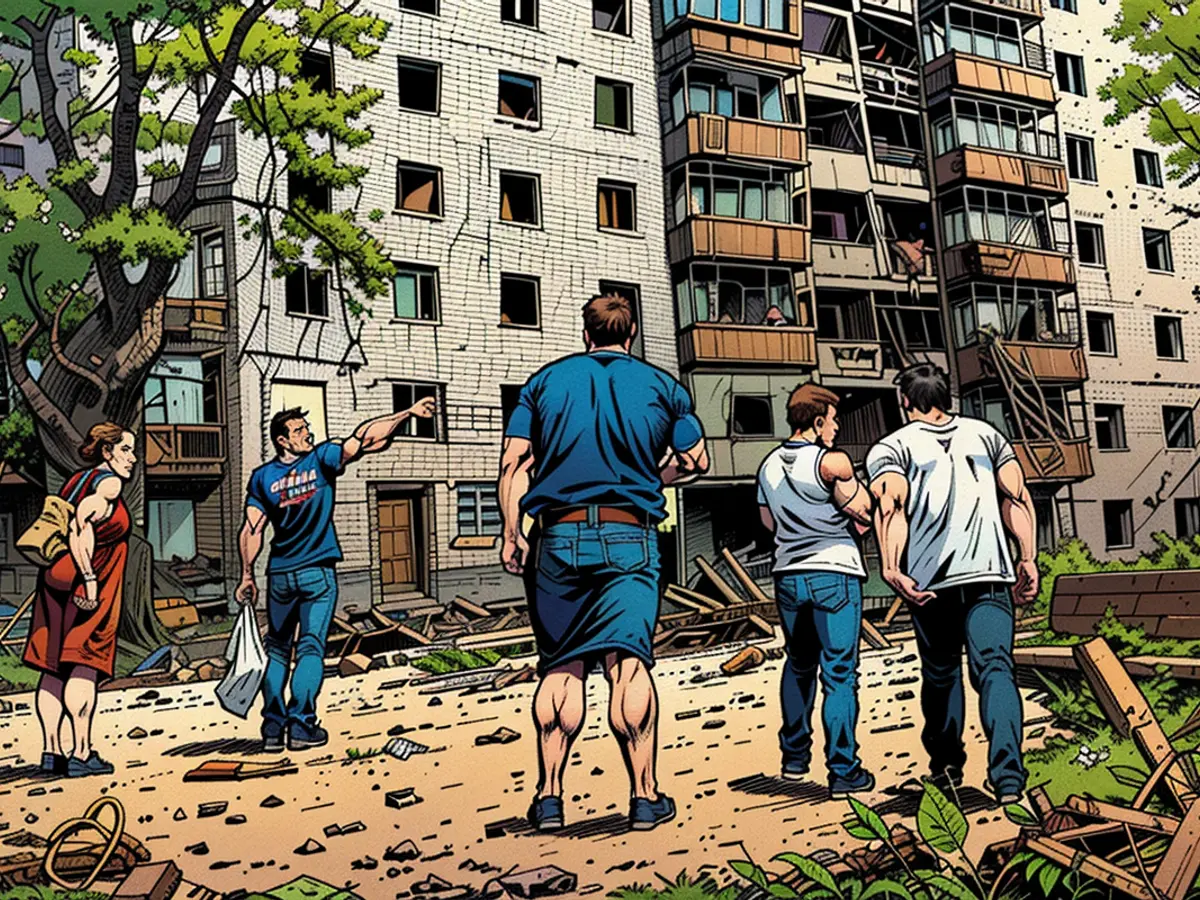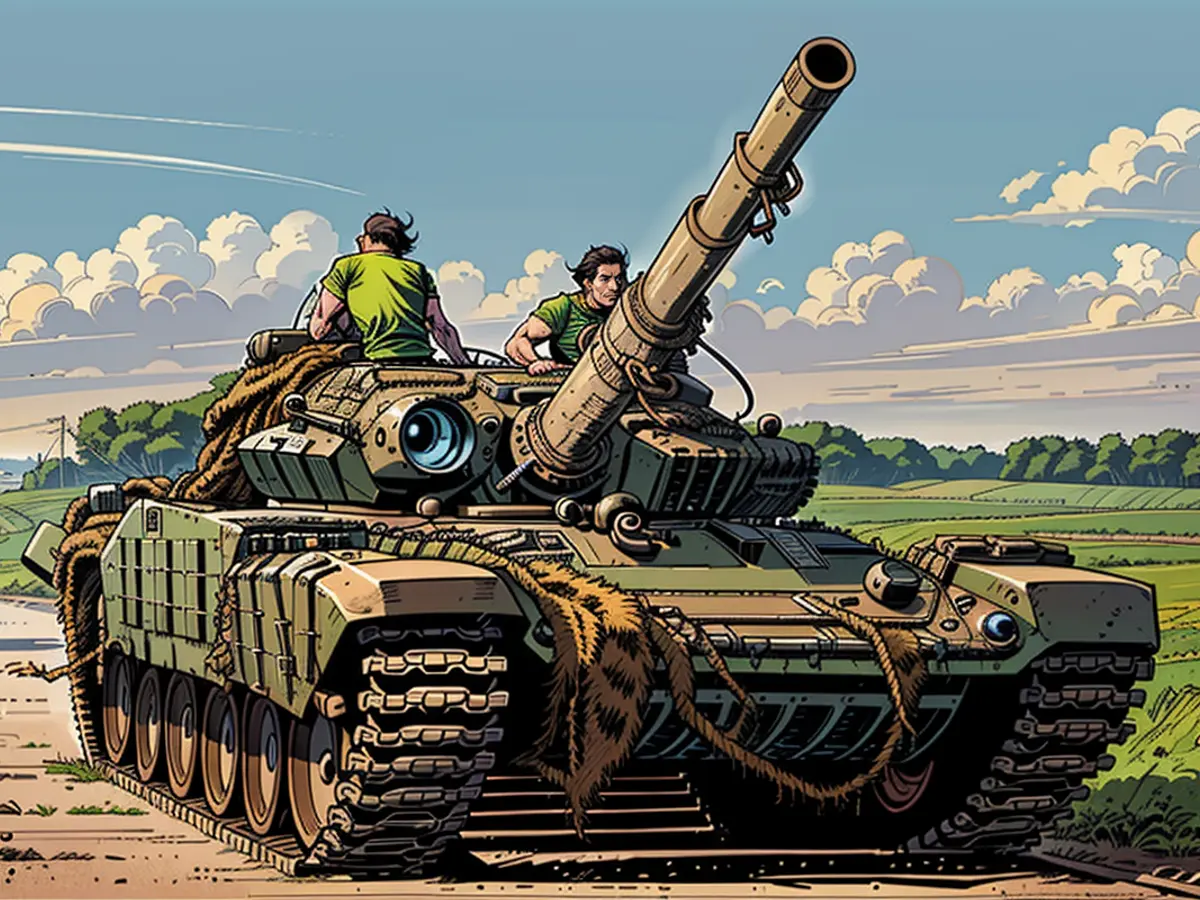Ukraine’s Russia gambit punctures Putin’s veneer of invincibility once again
Two months ago, as Russian troops poured into Kharkiv region, Kyiv was eyeing its borders, concerned at where else Russia might find vulnerabilities. Yet instead, Ukraine appears to have looked at the map, decided Russia was equally exposed, and turned Moscow’s gambit on its head.
A week in, and whatever the final outcome of Ukraine’s invasion of Russia, Kyiv’s initially perplexing, perhaps even rash, decision to send thousands of troops into the Kursk region and beyond is paying stark dividends. For the second time in just over a year, the Kremlin has a hostile force marching in its south, and very little it can do about it. Last June, it was the homegrown rogue mercenaries of Wagner, headed to Rostov and on, to decapitate Russia’s top brass. Now, it is Ukraine’s own military, scything off what they claim is 1,000 square kilometersof border territory.
Some analysis at the weekend put the figure at about a third of that. Nevertheless, the ability of Ukraine’s commander Oleksandr Syrskyi to even float this claim is a remarkable win in the information war for Kyiv, even if Moscow severely limits what information Russians are exposed to.
“Bold, brilliant, beautiful,” was what veteran US Republican Senator Lindsey Graham called Ukraine’s cross-border operation during a visit to Kyiv Monday. Meanwhile, US Democrat Senator Richard Blumenthal called it “historic” and a “seismic breakthrough.”
The events are remarkably similar in how they expose the gulf between the veneer of impregnability the Kremlin tries to portray, and the ramshackle reality of its power. And while Wagner boss Yevgeny Prigozhin’s march on Moscow fell apart when the former chef finally seemed to realize he was on his own – and had enraged Putin, rather than gaining his approval for tackling the failing top brass head-on – Ukraine’s forces seem to have little but their own supply lines and ambition holding them back.
Ukraine’s lightning advance is another example of their forces’ dexterity and mobility in warfare, over Moscow’s preference for slow, months-long grinding attacks on the same place. It is purposefully unclear exactly where Ukraine’s forces are. Videos pop up from towns far inside Russia, but without context. One overnight emerged from Lgov, about 26 miles from the border, with a soldier saying he promised his mother he would not go far.
It is also unclear where Ukrainian forces are digging in and where they are just racing through. The lack of transparency in the Russian system – where mistakes and problems are hidden rather than addressed head-on – works in Kyiv’s favor. It is unlikely Moscow, or even Kursk’s governor, knows the full picture of the mess they are in.

And the news the Kremlin is getting is uncharacteristically dire. When Kursk acting governor Alexei Smirnov told Putin on state TV on Monday that 28 settlements were under Ukrainian control, with 2,000 people’s fate unclear, and 121,000 residents evacuated, it’s likely the moment was staged and pre-recorded, like most of Putin’s televised meetings.
But to what avail? Putin turned the question towards his military chiefs, who he’s slowly decimated over the 30 months of this war’s ebb and flow. They clearly do not have the solution yet. But still Putin tries to play the role of the tsar adjudicating between chaotic and failing departments, despite on Wednesday being assured by his chief of staff, Valery Gerasimov, that the Ukrainian advance had been halted. The last time this sort of invasion of Russia happened, Joseph Stalin was in charge, and he did something other than televise his failing leadership.
Two questions remain. The first regards the ultimate fate of Ukraine’s incursion. Do they intend to try and hold even the smallest amount of terrain? Do they intend to keep raging across undefended spaces? And how much firepower, manpower, and precious Western-supplied equipment is Ukraine happy to indulge this effort with? The merits of the assault are less in doubt than a week ago when it was first launched. Putin has a bloody nose. But the Ukrainian endgame needs to be as carefully engineered as the invasion to capitalize on Kyiv’s success.
The second is what impact does this have on Ukraine’s more challenged frontline in Donbas? During the past week, the successes of Kursk region have been peppered with worse news from Toretsk, or near Pokrovsk, as Russian forces continue their costly, bloody, yet inexorable advance. No matter how small the village, Moscow just keeps attacking.
So far, Ukraine’s hope the Kursk operation would lead better units to be withdrawn from Donbas to support Russia’s borders has yet to bear major fruit. As images continue to pour in of poorly trained Chechen troops being taken prisoner en masse by advancing Ukrainians in Kursk, it is clear Russia has sent its less effective units into the fight. They may choose to change that approach. Putin has also entrusted the operation to the FSB, the internal security service that also controls the border guard, which has instituted a “counter-terror operation.” This has previously been used to tackle Islamist insurgencies, not columns of Ukrainian armor. That, too, may have been very short-sighted.
Manpower crunch
But soon the crunch for Kyiv emerges. Where does this leave its forces a month from now? Has the talk of a manpower crunch over the past months been because they were secretly holding forces in reserve for this assault? Do they extract a strategic advantage great enough from these advances that Moscow’s view of them as a defeated adversary changes? Does the advance make their Western supporters decide the support is truly paying off?
Regardless of how efficiently Ukraine answers these questions, Russia has for the second time in 15 months been rudely humiliated. Firstly it was by Putin’s own loyalists, egotistically turning on corruption and mismanagement. This time it is Putin’s own FSB, who couldn’t keep control of the borders, in Putin’s war of choice. This falling tree may not make a sound in the heavily managed forest of Russia’s political space. Yet it probably hit others as it fell.
One fact endures however. Both Ukraine’s President Volodymyr Zelensky and Russia’s Putin have referenced the incursion in terms of its role in talks. Putin said Ukraine was trying to improve its position ahead of talks – talks that still appear to lack an agenda, or a date, or any sense of trust between parties.

For his part, Zelensky said on Monday: “How useful this [incursion] can be for bringing peace closer.” He added: “Russia must be forced into peace if Putin wants to continue waging war so badly.” Kyiv knows it cannot enter talks with Russia without a strong hand, as the wildly deceptive negotiating style of the Kremlin has proven they simply stall for time unless they urgently need something from their interlocutor.
Still, even if Syrskyi only has half of the 1,000 square kilometers (386 square miles) he claims, a change in season to fall is no more than six weeks away, and with it the sludgy slowing of motion on the battlefield. Ukraine’s failed counteroffensive last summer has been eclipsed by the sudden success of this August incursion.
The dismal fortunes of last winter are not behind them yet, but they may approach the next with a better hand, and at the very least the idea of the Kremlin’s invulnerability - first broken in their failed initial invasion - shattered for at least the third time in this war.
Ukraine's strategic moves in Europe have caught the world's attention, as its military forces have made significant inroads beyond its borders, affecting Russia's security. Despite Russia's expansive territories, Ukraine's decision to challenge Moscow's vulnerabilities in the European context has been a topic of global discussion.
In the context of global security, Ukraine's actions in Europe have sent a clear message to both Russia and the rest of the world. The events unfolding in Ukraine and its impact on Russia's borders have significant implications for Europe and the world at large, as the balance of power within the continent continues to shift.







